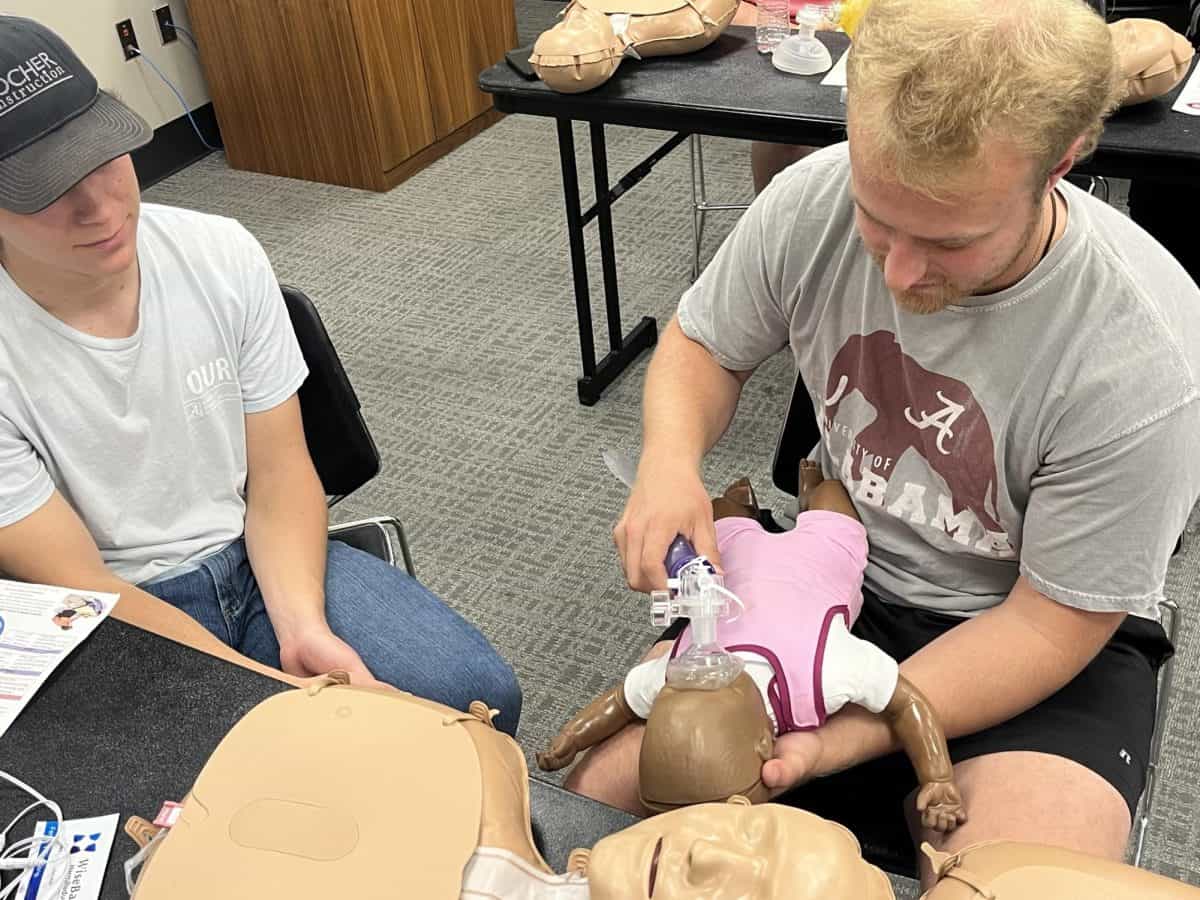Students in Support of Volunteer First Responders and End Overdose at the University of Alabama held a CPR and overdose training for students at the University of Alabama Student Center on Monday.
Hayden Rutter, a senior majoring in biology and the president of End Overdose, led the training with Vice President Tyler Zuspann, a junior finance and management major. They taught students how to properly approach and treat someone who is overdosing.
Once you recognize the symptoms of overdose, such as pinpoint pupils, it’s important to call for help, administer naloxone, and place the person on their side in recovery position. If the person does not respond to the naloxone, perform CPR and rescue breaths.
Glenn Davis, director of the College of Community Health Sciences’ emergency medical services program, led the CPR training.
Davis emphasized the importance of teaching college students life-saving techniques like performing chest compressions, using automatic external defibrillators and administering emergency breaths.
High-quality CPR consists of chest compressions reaching one-third the depth of the chest, and two rescue breaks after 30 chest compressions. Davis said administering high-quality CPR for eight minutes can save someone from biological death, in which a person’s brain and other vital organs become damaged from lack of oxygen.
“We cherish the lives of the individuals around us, so by learning CPR, you’re saving a life,” Davis said.
Nyah Rolle, a junior majoring in food and nutrition, said she has always wanted to get CPR-certified.
“The class was very informative,” Rolle said. “They know what they’re doing and I feel like a pro.”
Sam Sompayrac, a junior majoring in finance and the founder and president of Students in Support of Volunteer First Responders, said training students makes the campus safer.
“Having somebody who’s CPR-certified and trained to act in those situations is of utmost importance,” Sompayrac said.









